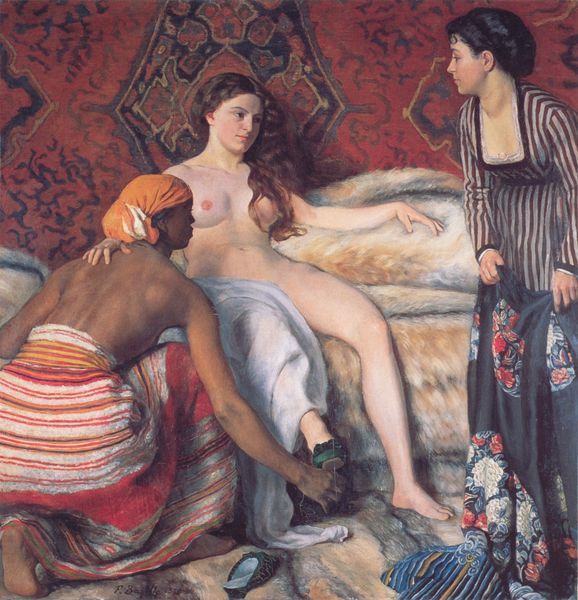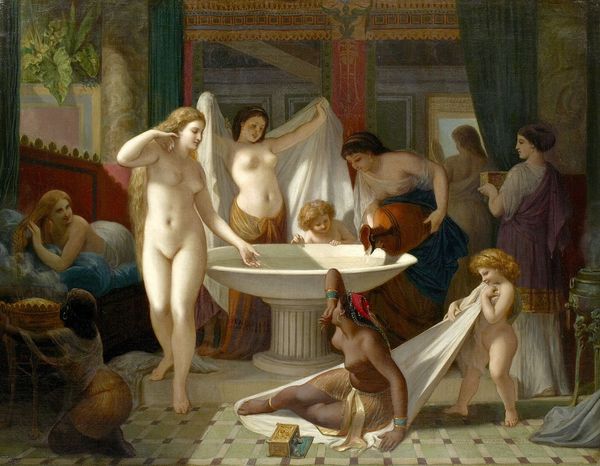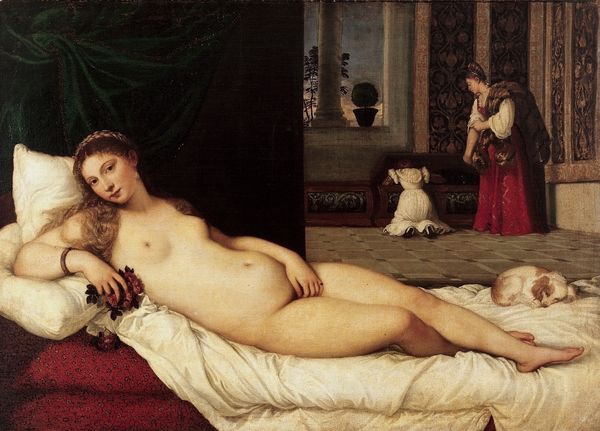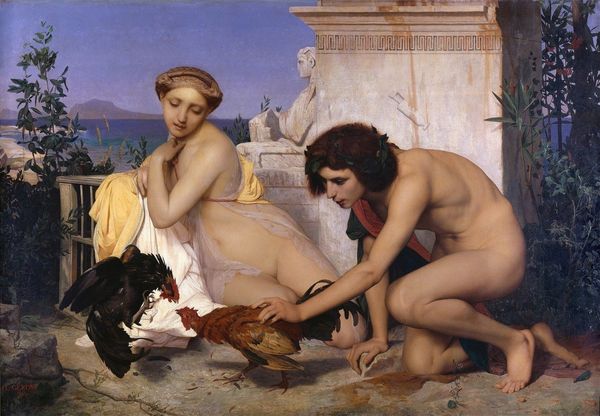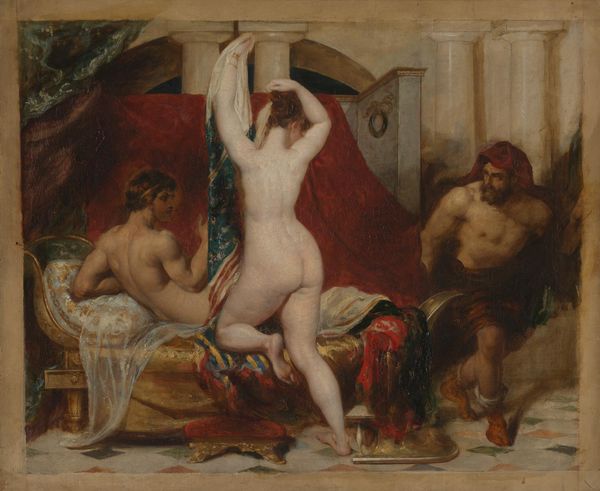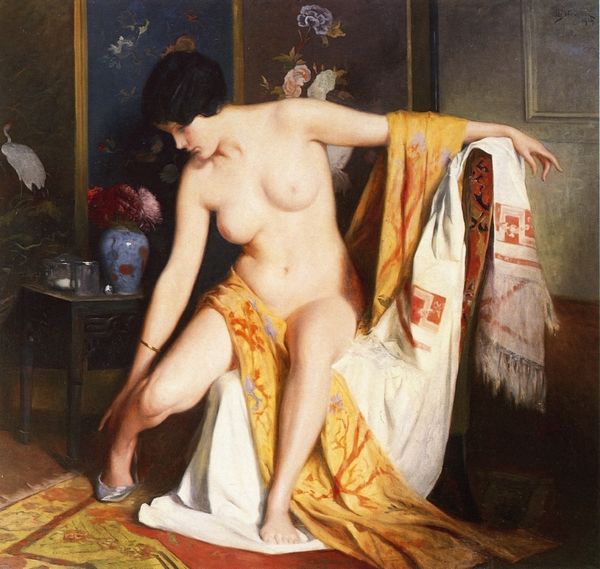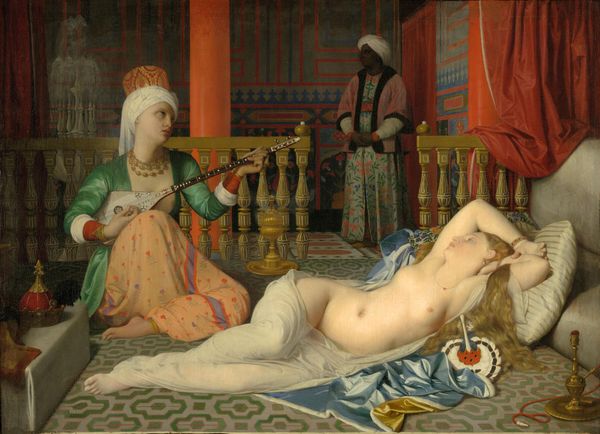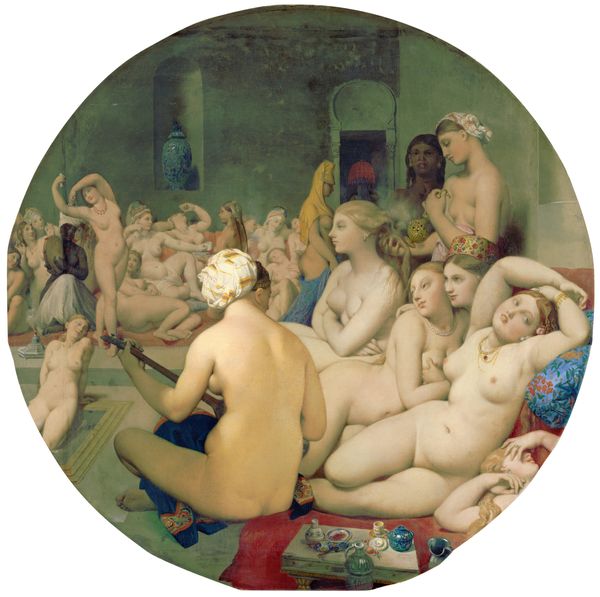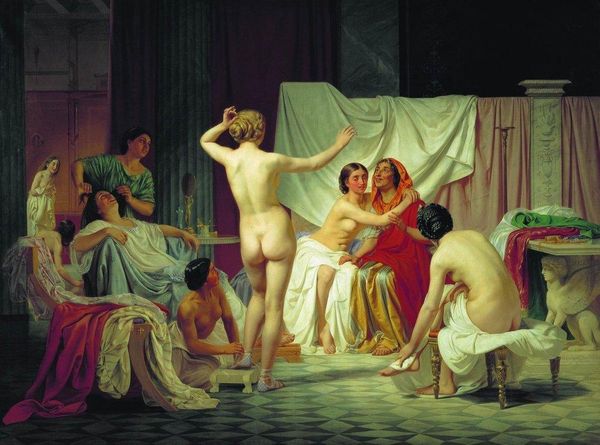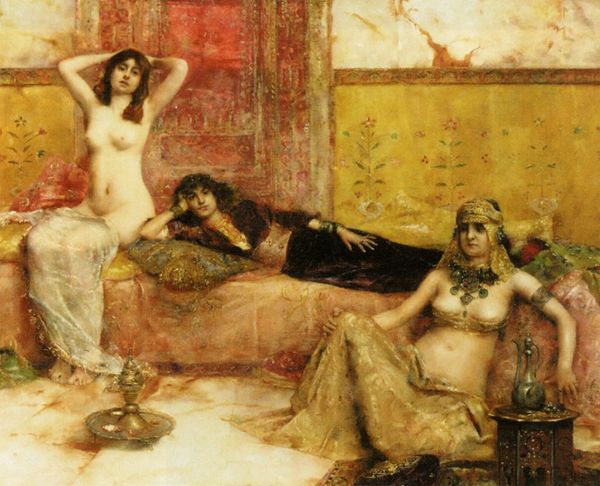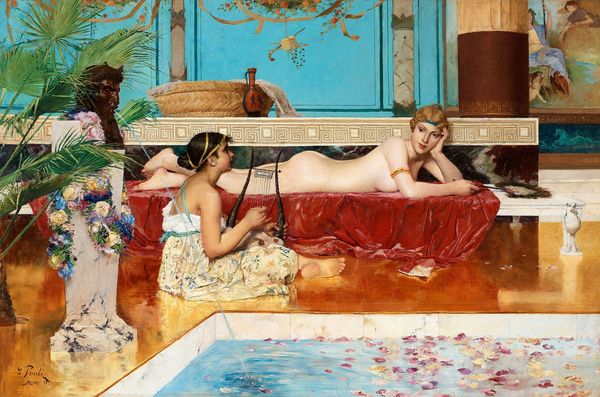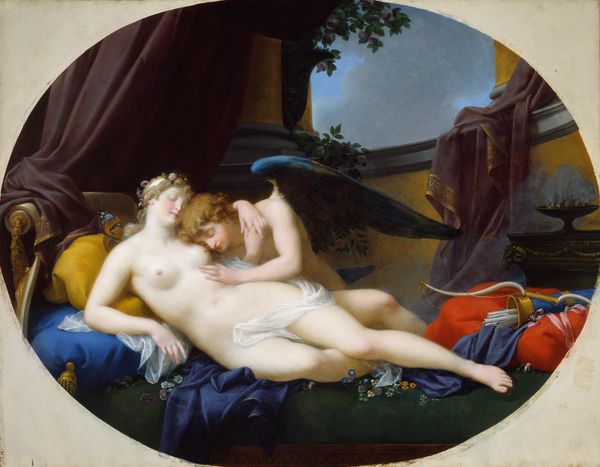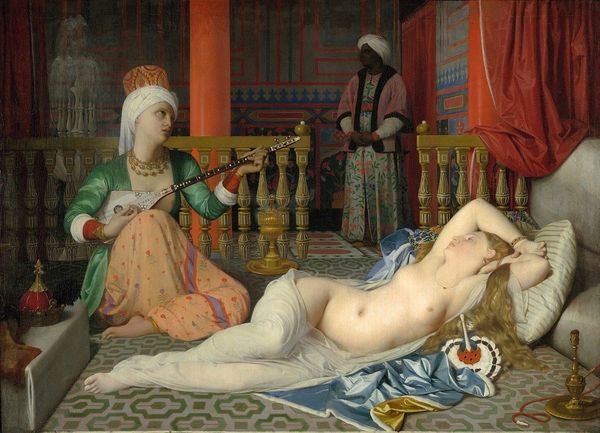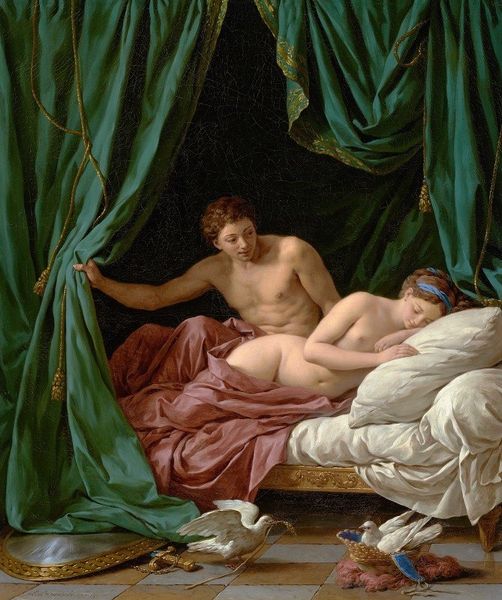
painting, oil-paint
#
neoclacissism
#
painting
#
oil-paint
#
greek-and-roman-art
#
figuration
#
female-nude
#
genre-painting
#
history-painting
#
academic-art
#
nude
#
erotic-art
Copyright: Public domain
Editor: Here we have Jean-Léon Gérôme's "Greek Interior" from 1848, rendered in oil. It feels languid, decadent, almost dreamlike, but there’s something unsettling about the figures in the background. How do you interpret this work, considering its historical context? Curator: It’s critical to view this painting through a lens of power and representation. Gérôme, as an academic painter, perpetuated orientalist fantasies for a European audience. This scene, supposedly depicting a Greek interior, likely reflects 19th-century French colonial attitudes towards the "Orient." What do you notice about how the women are posed and presented? Editor: They seem passive, almost like objects, especially compared to the men who appear to be engaged in some kind of discussion. Curator: Exactly. The female nude was a recurring trope used to signify the exotic ‘other’ while reinforcing a masculine gaze. The title itself, "Greek Interior," is a misnomer. It evokes classical Greece but actually panders to contemporary fantasies about the East. Think about the legacy of colonialism; isn't this image contributing to a harmful narrative? Editor: I see your point. It’s easy to get caught up in the aesthetic beauty without questioning the underlying assumptions and the power dynamics at play. It’s not simply a historical painting; it's an active participant in a broader discourse about the "Orient." Curator: Precisely. The painting reflects the artist’s historical context but, moreover, it actively shapes our perception and potentially reinforces harmful stereotypes. Consider what role art could or should have in addressing these problems. Editor: This has completely changed my perspective on this piece! I appreciate you bringing these complexities to light. Curator: And I appreciate your willingness to critically engage with the artwork's difficult and important implications. It is essential that we never stop interrogating the legacy of such work.
Comments
No comments
Be the first to comment and join the conversation on the ultimate creative platform.
